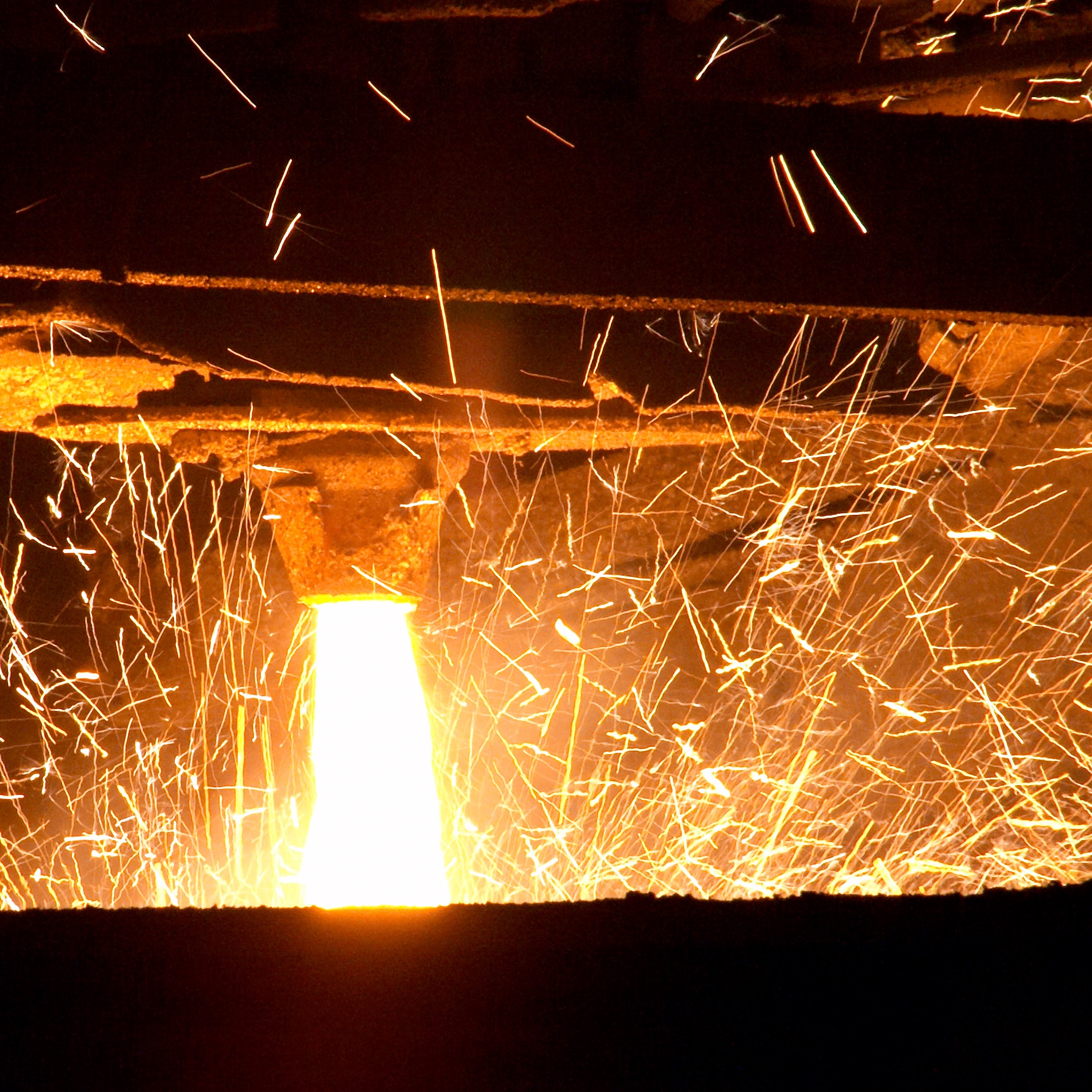
United States Steel Corp. (NYSE: X) is not feeling any love from investors after earnings. Maybe tariffs and fears of a trade war really don’t help when it hurts a company’s customers and end-users. The reality is that there are concerns over tariffs, but there is also concern about operational issues in North America affecting the results and making for a bumpy outlook in 2018.
U.S. Steel’s first-quarter earnings were $0.10 per share net, but came in at $0.32 per share on an adjusted basis. Analysts were calling for just $0.30 in adjusted earnings. A year ago, adjusted earnings actually came in at a loss of $0.83 per share.
The steel giant also reported revenues of $3.15 billion. That is up from $2.72 billion a year ago and ahead of the $3.14 billion expected.
The issue with U.S. Steel was not the earnings report. It was the caution and some of the implied expectations for a bumpy 2018. The revitalization program is seeing some operational volatility and the firm is seeing some challenges in operations.
The only good news for the stock is that the opening bell reaction was not as bad as the 7.7% drop that had been seen in the early hours of premarket trading on Friday. U.S. Steel shares were down 6.1 at $35.40 right after the opening bell on Friday. It has a 52-week trading range of $18.55 to $47.64 and a consensus target price of $47.73.
President & CEO David Burritt said about looking forward into 2018:
We are beginning the second year of our asset revitalization program, and we are already seeing benefits from the investments in our assets. It is prudent for us to anticipate the possibility of continued operational volatility for those assets yet to be revitalized. We remain focused on managing operating volatility to ensure we take care of our customers, and the restart of steelmaking at Granite City will increase our ability to do so. While there is uncertainty about how country exemption and product exclusion requests related to Section 232 will be resolved, we continue to invest in revitalizing our assets and developing innovative customer solutions. We are confident we will deliver our 2020 performance objectives.
Currently, we are experiencing operational challenges at our steelmaking facility at Great Lakes Works that we expect will have an unfavorable EBITDA impact of approximately $30 million on second quarter results. We currently believe that second quarter 2018 adjusted EBITDA will be approximately $400 million, and full-year 2018 adjusted EBITDA will be approximately $1.7 billion to $1.8 billion.
Credit Suisse maintained its Outperform rating and $55 price target after the report. The firm sees the second-quarter guidance as light but sees a solid second half of 2018. The firm said:
While all the focus will be on the second quarter guide and why U.S. Steel is still firmly in “show me” territory, we would stress that the implied second half of 2018 guidance was very solid at $1.1 billion. We had forecast the second half of 2018 EBITDA of $995 million on a highly backwardated curve, versus consensus at $935 million. US Steel was clear that they are being conservative on their price curve and also still sounded very cautious on OCTG (despite Korea quota).
Merrill Lynch maintained its Neutral rating, but it still has a $50 price objective. The firm said that guidance disappointed the bulls and that European operations helped to carry the earnings beat as U.S. operations are disappointing. The firm also warned:
U.S. Steel is especially exposed to prices and has relatively fixed costs, but its longer-term contract structure means its Section 232 benefit will depend more than the more spot-focused minimills on the duration of the 25% Section 232 tariff on imported steel. Uncertainty over the tariff has kept investors hesitant, in our view, and the latest operational challenges add to the potential earnings volatility.
Thank you for reading! Have some feedback for us?
Contact the 24/7 Wall St. editorial team.



